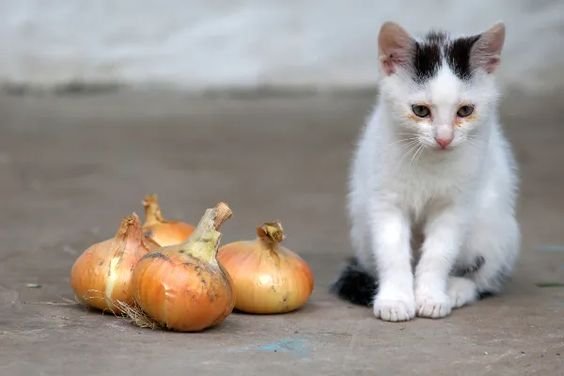Cats and Onions: A Cautionary Tale of Feline Safety
Cats are beloved members of our families, and we strive to keep them safe and healthy. As responsible pet owners, it’s essential to be aware of potential hazards that could pose a risk to our feline friends. One such danger is onions. While onions are a common and flavorful ingredient in many human dishes, they can be toxic to cats. In this article, we’ll explore the potential dangers of cats consuming onions and the importance of keeping these two apart for the well-being of our feline companions.
1. Onion Toxicity in Cats
Onions contain compounds that are harmful to cats, most notably a substance called N-propyl disulfide. When ingested, these compounds can lead to a condition known as onion toxicity or onion poisoning in cats.
2. Harmful Effects on Feline Health
The toxic substances in onions can cause damage to a cat’s red blood cells, leading to a condition called hemolytic anemia. This can result in a decrease in the number of healthy red blood cells, affecting the cat’s ability to carry oxygen throughout the body.
3. Symptoms of Onion Toxicity
Symptoms of onion toxicity in cats may include weakness, lethargy, vomiting, diarrhea, increased heart rate, pale gums, and breathlessness. In severe cases, it can lead to more severe symptoms like collapse and even death.
4. Hidden Onion Content
Onions can be present in various dishes and food products, including soups, stews, sauces, and even some baby food. It’s crucial to read labels carefully and avoid feeding cats any food containing onions.
5. Onions in Cat Food
Responsible cat food manufacturers avoid using onions as an ingredient in their products. However, it’s always best to double-check labels to ensure the food is free of any harmful substances.
6. Preventing Accidental Ingestion
Cats are curious creatures, and they may show interest in human food, including dishes containing onions. As such, it’s essential to keep onions and any foods containing them out of reach from cats to prevent accidental ingestion.
7. Immediate Veterinary Care
If a cat is suspected to have ingested onions or displays any symptoms of onion toxicity, it’s crucial to seek immediate veterinary care. Timely intervention can be life-saving for a cat suffering from this condition.
8. Safe Feline Diet
To ensure a cat’s safety, it’s best to stick to a balanced and nutritionally complete feline diet specifically formulated for their needs. Human food, especially those known to be toxic, should not be fed to cats.
9. Educating Others
As responsible cat owners, it’s essential to educate others, including family members and guests, about the dangers of onions to cats. Ensuring everyone in the household is aware of these risks can prevent accidental feeding of harmful substances.
10. Prioritizing Feline Well-being
Above all, the well-being of our feline friends should be the top priority. Being cautious and proactive in avoiding potential hazards like onions can help ensure that our cats live healthy and happy lives, free from preventable risks.
While onions are a flavorful addition to many human dishes, they can be hazardous to our feline companions. Understanding the risks of onion toxicity and taking necessary precautions can safeguard our cats’ health and well-being. As responsible pet owners, we must prioritize the safety of our furry friends and ensure they are protected from potential dangers, including harmful foods like onions.


